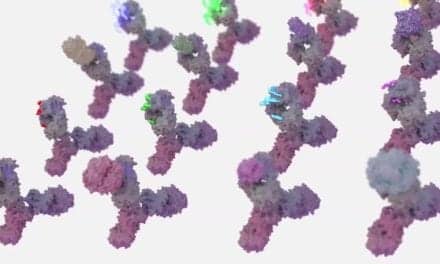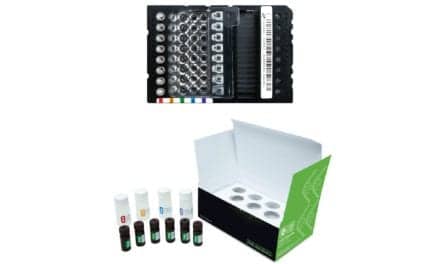BloodCenter of Wisconsin’s Diagnostic Laboratories announces the availability of a new test for ADAMTS13 antibodies to aid in the diagnosis of thrombotic thrombocytopenic purpura (TTP), a rare disease in which small blood clots form in blood vessels throughout the body.
TTP is a disorder caused by a deficiency of the naturally occurring enzyme, ADAMTS13. Lack of enzyme activity is usually the consequence of antibodies that either inhibit or remove ADAMTS13 from circulation.
BloodCenter of Wisconsin already offers two laboratory-developed tests (ADAMTS13 Activity and ADAMTS13 Inhibitor) to assist in the diagnosis and clinical evaluation of TTP patients. The addition of ADAMTS13 Antibody to BloodCenter’s laboratory evaluations of TTP will result in increased specificity for diagnosis, identification of optimal therapies for TTP patients, and enhanced prognostic value for the likelihood of relapse. BloodCenter’s expanded suite of tests enables clinicians to diagnosis TTP due to low levels of ADAMTS13, a capability not available at any other laboratory in the world.
“As a clinician, I need to arrive at the correct diagnosis and also identify those patients who are more likely to relapse and develop recurrent TTP,” said Anaadriana Zakarija, MD, assistant professor, Northwestern University, Division of Hematology/Oncology. “I’ve trusted the ADAMTS13 test results from BloodCenter of Wisconsin over the years for laboratory evidence to support my clinical evaluations. The new antibody test will provide an additional piece of valuable information.”
In 1992, BloodCenter became the first clinical laboratory to introduce testing to measure ADAMTS13. This was followed by BCW’s introduction of the ADAMTS13 Inhibitor assay, which measures the antibodies that inhibit ADAMTS13 activity. Low levels of ADAMTS13 in patients with acquired TTP appear to be caused by the presence of circulating antibodies to ADAMTS13.
In the laboratory, about 80% of these antibodies inhibit activity of ADAMTS13, and other laboratory tests cannot detect the remaining 20% of clinically important antibodies. BloodCenter’s new ADAMTS13 Antibody assay will enhance detection by revealing the presence of antibodies not detected by inhibition methods.
According to Ken Friedman, MD, the medical director of BCW’s Hemostasis Reference Laboratory, “TTP is often difficult to diagnose because the clinical symptoms overlap with other thrombocytopenic conditions, such as hemolytic uremic syndrome and immune thrombocytopenic purpura. Our suite of ADAMTS13 assays provide a complete laboratory picture and will aid clinicians in the differential diagnosis of TTP.”
BloodCenter’s Diagnostic Laboratories Product Development Specialist Sharniece Covill added, “Hematologists and transfusion service directors who order the ADAMTS 13 Antibody can be assured that the assay has been subjected to the extensive evaluation, validation and training with which all BloodCenter tests are associated.”
Incidence is estimated at around two to four per million.
Source: BloodCenter of Wisconsin




